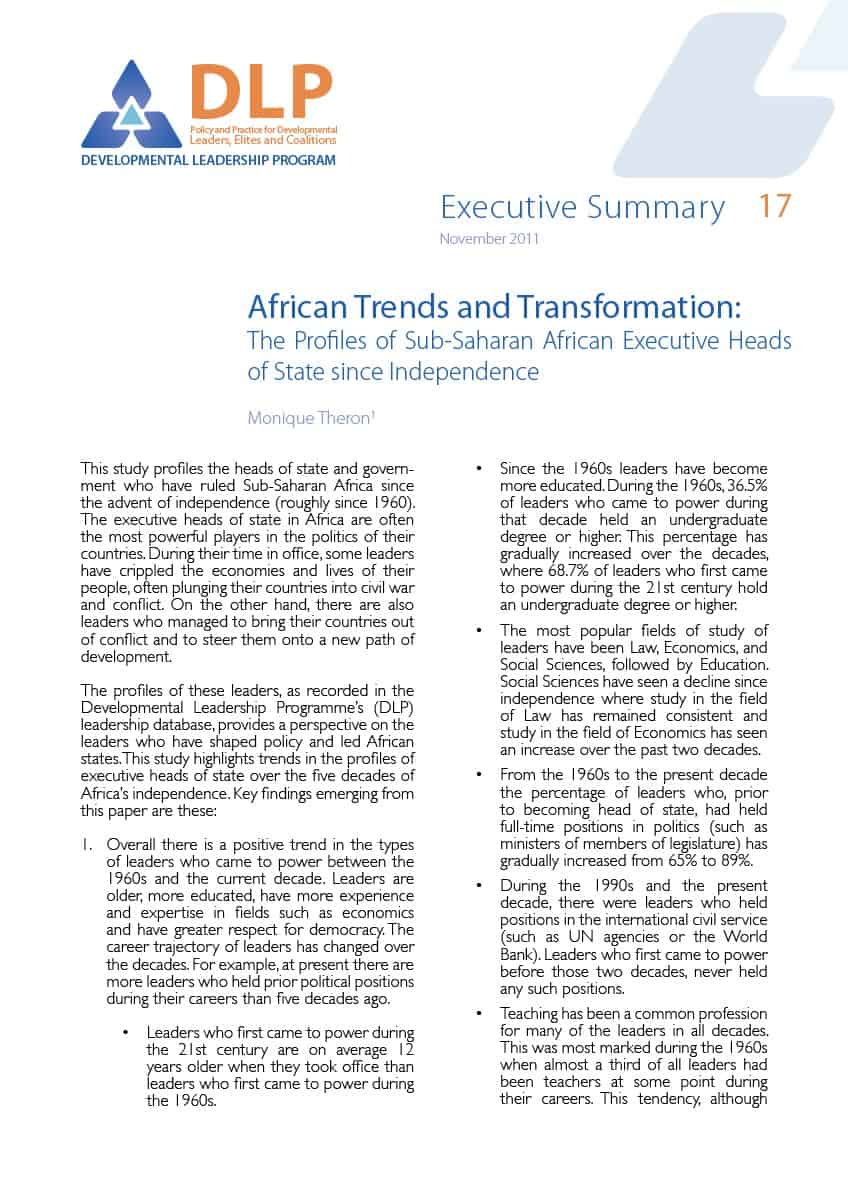The profiles of Heads of State of Sub-Saharan African countries have changed remarkably since the advent of independence in Africa (roughly since 1960).
- First, this analysis has shown that the calibre of leaders has improved over the past five decades. Leaders are now more mature, more experienced, more educated and have greater respect for democratic principles and practices. This observation is also supported by the increase in elections and the number of times leaders have come to power through peaceful and legitimate means, instead of violent and illegitimate means.
- Second, the quantitative analysis of leaders’ profiles has shown that a leader’s particular profile and empirical characteristics play a role in the type of ruler s/he might become.
The study provides empirical data on leaders’ biographies that show that civilian rulers share similar backgrounds and profiles, whereas the background profiles of personal rulers and military rulers differ. This extensive collection of data, as recorded in the Development Leadership Programme’s (DLP) leadership database and its associated query tool, opens up further avenues to conduct studies on the profiles of leaders and their role in guiding policy making and development.
Download the summary below or see the full paper.








